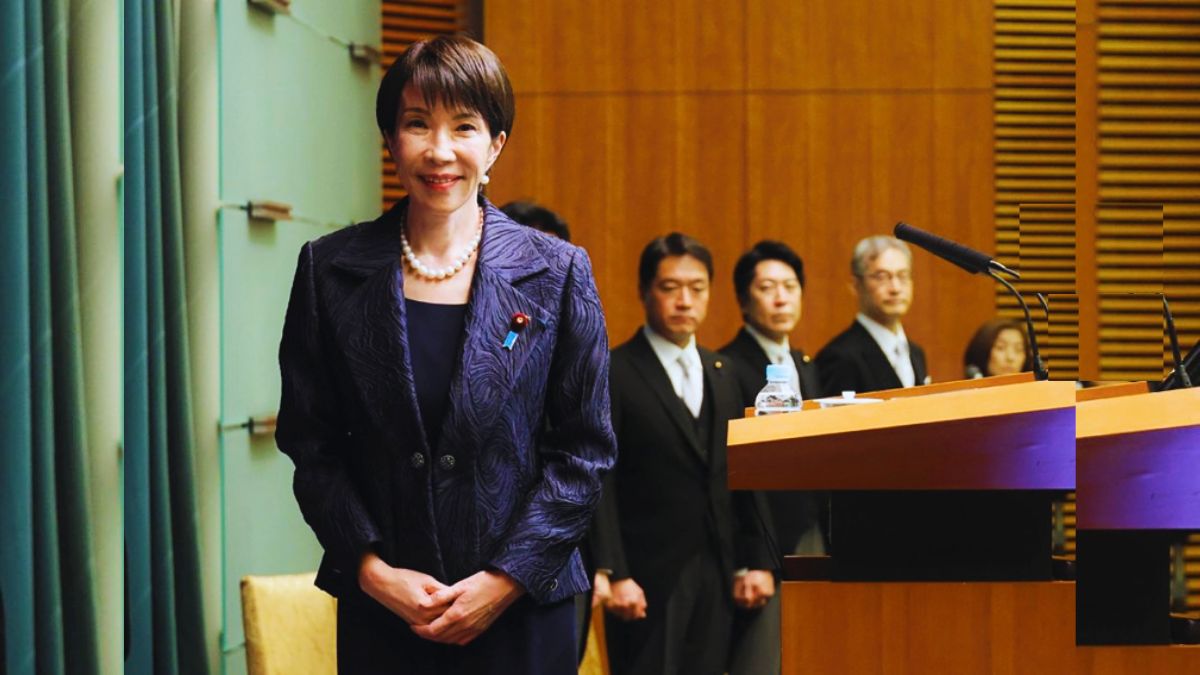World News
Japan Elects 1st Female Prime Minister Amid Cabinet Disappointment

TOKYO – Japan has made history by electing its first female Prime Minister, the conservative nationalist Sanae Takaichi, 64, who was voted into office by both chambers of the Japanese Parliament on Tuesday, October 21, to succeed Shigeru Ishiba.
However, the landmark moment was immediately tempered by disappointment as Takaichi, despite promising a “Scandinavian” level of female representation, only named two women to her cabinet—the same number as her predecessor.
This included ultra-conservative Satsuki Katayama as Finance Minister and Kimi Onoda in the Economic Security brief.
The New Leader and Political Landscape
Takaichi, known for her staunchly conservative views, assured her appointment by finalising a coalition with the centre-right reformist Japan Innovation Party (Ishin) on Monday, October 21.
This crucial alliance follows the departure of her Liberal Democratic Party’s (LDP) traditional ally, the centrist Komeito, which quit the long-standing coalition over a recent financial scandal and Takaichi’s conservative opinions.
Her victory comes at a turbulent time for the conservative LDP, which has governed almost uninterrupted since 1955 but recently lost its parliamentary majority due to the scandal.
Takaichi, who won the LDP presidency earlier this month, bowed several times to members of Parliament while containing her emotion.
Her appointment is set to become official following an audience with Emperor Naruhito later in the day.
International Reaction and Future Challenges
European Commission President Ursula von der Leyen welcomed the ascension, hailing Takaichi for “making history.”
However, her tenure is already under scrutiny. Political science professor Yu Uchiyama of the University of Tokyo suggested that Takaichi’s longevity would depend on the stability of the new coalition, noting that her decision on whether to call a general election will be a “determining factor.”
A lost election would “have an extremely negative impact on her image,” Uchiyama warned.
Takaichi’s Stance and Economic Focus
The new Prime Minister’s conservative positions on gender equality place her on the right wing of the LDP, which is already a conservative party.
She opposes revising a law requiring married couples to share the same surname and supports an exclusively male imperial succession.
Japan currently ranks 118th out of 148 countries in the World Economic Forum’s 2025 gender gap report, and only 15% of the Lower House of Parliament are women.
Takaichi, a protégé of former Prime Minister Shinzo Abe, has voiced support for increasing public spending to boost the economy, a platform that propelled the Tokyo Stock Exchange to record levels following her LDP victory.
She faces the formidable tasks of combating Japan’s demographic decline and reviving the world’s fourth-largest economy.
Foreign Policy and US Relations
On the international front, Takaichi has previously stated that Japan was “completely despised by China” and that Tokyo must “face the security threat” posed by Beijing, while also calling for greater security cooperation with Taiwan.
She has, however, recently moderated her language and prudently abstained from visiting the controversial Yasukuni Shrine—a symbol of Japanese militarism to its neighbours—last week.
The Chinese Foreign Ministry noted the election result and expressed hope that Tokyo will “fully advance the strategic and mutually beneficial relations” between the two nations.
Meanwhile, Takaichi’s first diplomatic challenge is the upcoming visit of US President Donald Trump next week.
Potential friction points include the vague details of Japan’s planned $550 billion in investments under its trade agreement with Washington.
The US President also wants Tokyo to stop importing Russian energy and increase its defence spending.
Home City Support
In Takaichi’s hometown of Nara, retiree Satoshi Sakamoto, 73, welcomed her rise, telling AFP she “really climbed the ranks” and “worked hard to get here.” Sakamoto added that he hoped the new leader would be “able to clearly say ‘no’ when necessary” in her dealings with the US President.
Source: Le Mauricien











